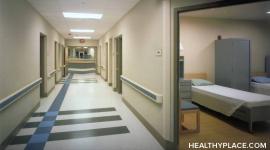What Is Dementia? Description, Diagnosis, Causes

Full description of dementia. Definition, signs, symptoms, and causes of dementia.
Description of Dementia
Dementia is very common in the U.S. and usually occurs in people over the age of 65. It's the number one reason why people are admitted to nursing homes.
As people age, changes in the brain cause some decline in short-term memory and slowing in learning ability. These normal age-related changes, unlike dementia, do not affect the ability to function. Such memory loss in older people is sometimes called age-associated memory impairment. The Merck Manual describes dementia as a much more serious decline in mental ability, and one that worsens with time. "People who are aging normally may misplace things or forget details, but people who have dementia may forget entire events. People who have dementia have difficulty doing normal daily tasks such as driving, cooking, and handling finances." Age-associated memory impairment is not necessarily a sign of dementia or early Alzheimer's disease.
Diagnostic Criteria for Dementia
1. Impairment in short and long-term memory
2. At least 1 of the following:
- Impairment in abstract thinking
- Impaired judgment
- Other disturbances of higher cortical function
- Personality change
- Memory impairment and intellectual impairment cause significant social and occupational impairments and represent a significant decline from a previous level of functioning
3. Absence of occurrence exclusively during the course of Delirium.
4. Either of the following:
- Evidence of an organic factor causing this impaired memory and intellect
- Impaired memory and intellect cannot be accounted for by any nonorganic mental disorder
In the case of Dementia-Alcoholism type, point 4 would be replaced by:
- Memory loss followed prolonged, heavy ingestion of alcohol
- Exclusion of all causes of memory loss other than alcoholism
In the case of Dementia-Alzheimer's type, point 4 would be replaced by:
- Insidious, gradual onset with a generally progressive deteriorating course
- Exclusion of all other specific causes of Dementia (except Alzheimer's)
Causes of Dementia
According to the Merck Manual, dementia can occur as a brain disorder without another cause, but dementia can be caused by other disorders. For instance, Alzheimer's Disease accounts for 50-70% of the cases. Other common types include vascular dementia, Lewy body dementia, and frontotemporal dementia (such as Pick's disease). People may have more than one of these dementias (a disorder called mixed dementia).
Disorders that can cause dementia include the following:
- Parkinson's disease (a common cause)
- Brain damage due to a head injury or certain tumors
- Huntington's disease
- Prion diseases, such as Creutzfeldt-Jakob disease
- Progressive supranuclear palsy
- Radiation therapy to the head
Sources: 1. American Psychiatric Association. (1994). Diagnostic and Statistical Manual of Mental Disorders, Fourth Edition. Washington, DC: American Psychiatric Association. 2. Merck Manual, Home Edition for Patients and Caregivers, last revised 2006.
APA Reference
Staff, H.
(2019, October 28). What Is Dementia? Description, Diagnosis, Causes, HealthyPlace. Retrieved
on 2026, January 13 from https://www.healthyplace.com/other-info/psychiatric-disorder-definitions/dementia


